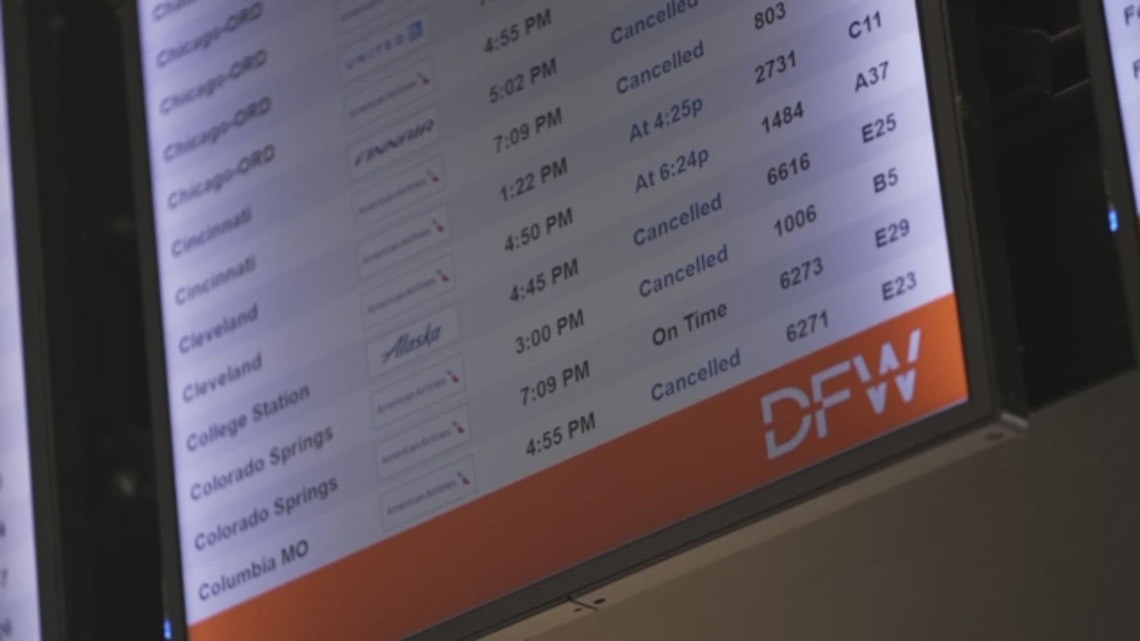Dallas-Fort Worth International Airport: A Beacon of Growth in Global Air Travel
In a remarkable assertion of its operational prowess and strategic positioning within the aviation sector, Dallas-Fort Worth International Airport (DFW) has once again secured its place as the third-busiest airport in the world for passenger traffic, as reported by Airports Council International. This accolade underscores not only the airport’s capacity and efficiency but also highlights the burgeoning significance of the Dallas-Fort Worth region as an essential hub in the global travel network.
In the year under review, DFW facilitated the movement of over 87.8 million passengers—an impressive increase of 7.4% compared to the previous year. This surge affirms DFW’s dominant role in international and domestic air travel, trailing only behind the Hartsfield-Jackson Atlanta International Airport and Dubai International Airport, which boast higher passenger volumes. The steady growth of passenger traffic at DFW can be attributed to a combination of factors, including its expansive flight network, strategic geographical location, and the ongoing enhancements made to its infrastructure.
Notably, DFW Airport’s growth rate outpaced that of its primary competitors, with the airport being lauded for having the highest growth rate among the top three busiest airports worldwide. As part of its commitment to adapting to this rising demand, DFW is undergoing an extensive capital investment program estimated at billion. This substantial investment aims to construct additional terminals and expand existing facilities, thereby ensuring the airport can accommodate a significantly increasing number of travelers while maintaining high service levels and operational efficiency.
The airport’s trajectory of growth is particularly remarkable when considering the context of global air travel, which has faced numerous challenges in recent years, including the repercussions of the COVID-19 pandemic. As the world gradually transitions towards recovery, DFW stands out as a leader in reestablishing passenger confidence and enhancing operational capabilities. Sean Donohue, the Chief Executive Officer of DFW Airport, articulated this sentiment, stating, “DFW continues to experience unprecedented growth as we near serving 90 million passengers annually. Our continued place among the world’s busiest airports reflects the strength of this region, our airline partners, and the intentional investments we have made to operate an efficient and innovative facility for our partners and customers alike.”
Further emphasizing the airport’s significance, DFW also ranks third in terms of airport movements, supporting air traffic operations with efficiency and reliability. The airport provides service to more than 260 destinations worldwide, including 73 international locations, thereby solidifying its role as a vital conduit for global connectivity. The diverse range of destinations available from DFW caters to a multitude of travel needs, including business, leisure, and international tourism, enhancing the airport’s appeal.
In addition to its rankings in passenger traffic and movements, DFW has been distinguished as one of the “Best Airports in North America” for three consecutive years—an accolade awarded by Airports Council International. This recognition signals the airport’s commitment to superior customer service, operational excellence, and innovation within the field of air travel.
The implications of DFW’s robust growth extend beyond airport operations; they reflect broader economic trends and development in the Dallas-Fort Worth region. As the region continues to thrive, bolstered by a diverse economy and a booming population, the airport’s status as a key transportation hub will likely play a pivotal role in attracting business and tourism, thereby stimulating local and regional economic growth.
In conclusion, Dallas-Fort Worth International Airport’s maintenance of its standing as the third-busiest airport globally is a testament to its operational excellence and strategic planning. As the aviation industry continues to recover and evolve, DFW is poised to remain a cornerstone of not just regional, but also international air travel, enhancing accessibility and promoting global connections.
Tags: #BusinessNews #EconomyNews #TravelTourism #Dallas #USA

